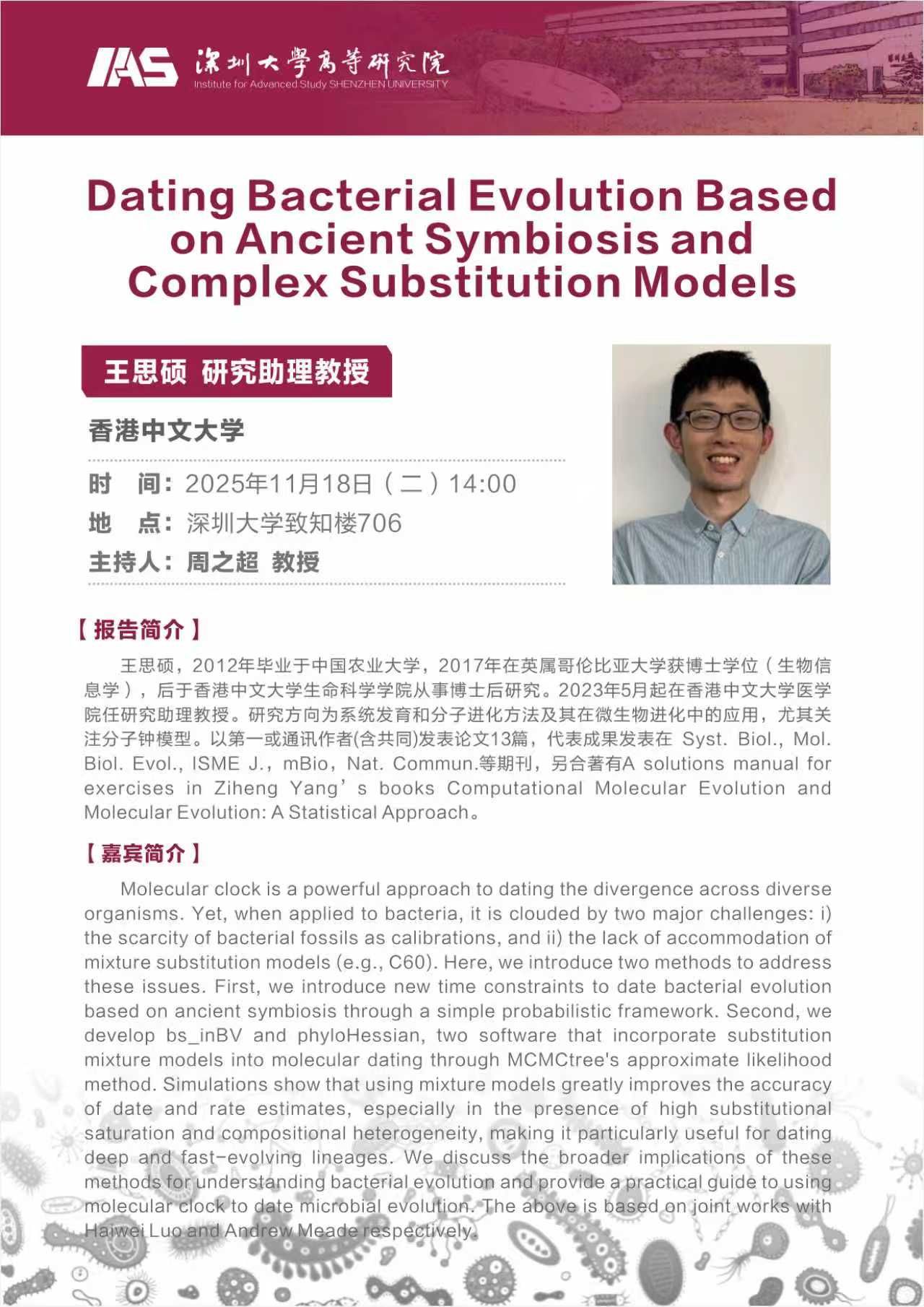报告主题:Dating Bacterial Evolution Based on Ancient Symbiosis and Complex Substitution Models
主 讲 人:王思硕 研究助理教授(香港中文大学)
主 持 人:周之超 教授
时 间:2025年11月18日(二)14:00
地 点:致知楼706
嘉宾简介:
王思硕,2012年毕业于中国农业大学,2017年在英属哥伦比亚大学获博士学位(生物信息学),后于香港中文大学生命科学学院从事博士后研究。2023年5月起在香港中文大学医学院任研究助理教授。研究方向为系统发育和分子进化方法及其在微生物进化中的应用,尤其关注分子钟模型。以第一或通讯作者(含共同)发表论文13篇,代表成果发表在 Syst. Biol., Mol. Biol. Evol., ISME J.,mBio,Nat. Commun.等期刊,另合著有A solutions manual for exercises in Ziheng Yang’s books Computational Molecular Evolution and Molecular Evolution: A Statistical Approach。
报告摘要:
Molecular clock is a powerful approach to dating the divergence across diverse organisms. Yet, when applied to bacteria, it is clouded by two major challenges: i) the scarcity of bacterial fossils as calibrations, and ii) the lack of accommodation of mixture substitution models (e.g., C60). Here, we introduce two methods to address these issues. First, we introduce new time constraints to date bacterial evolution based on ancient symbiosis through a simple probabilistic framework. Second, we develop bs_inBV and phyloHessian, two software that incorporate substitution mixture models into molecular dating through MCMCtree's approximate likelihood method. Simulations show that using mixture models greatly improves the accuracy of date and rate estimates, especially in the presence of high substitutional saturation and compositional heterogeneity, making it particularly useful for dating deep and fast-evolving lineages. We discuss the broader implications of these methods for understanding bacterial evolution and provide a practical guide to using molecular clock to date microbial evolution. The above is based on joint works with Haiwei Luo and Andrew Meade respectively.



